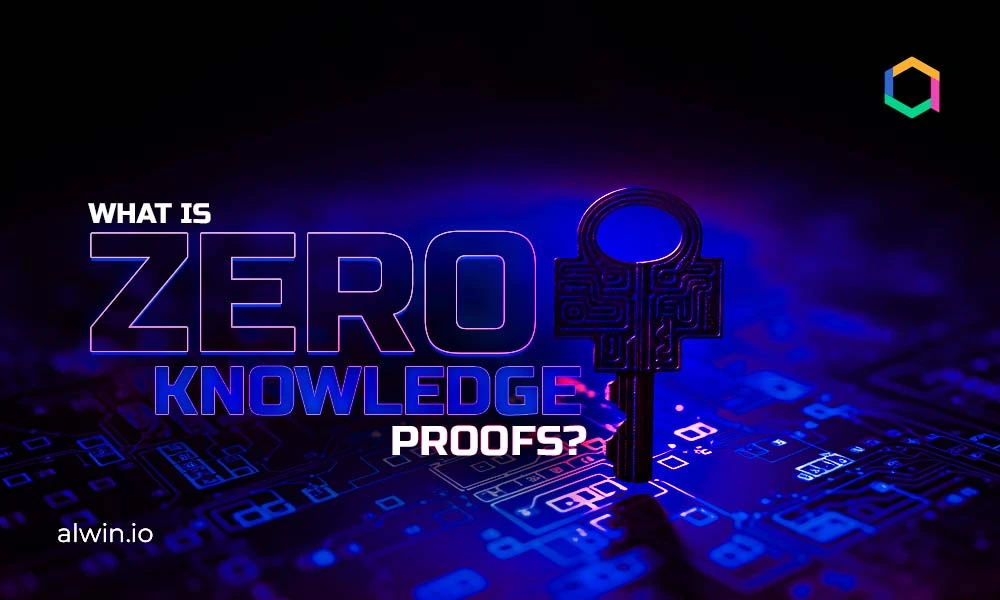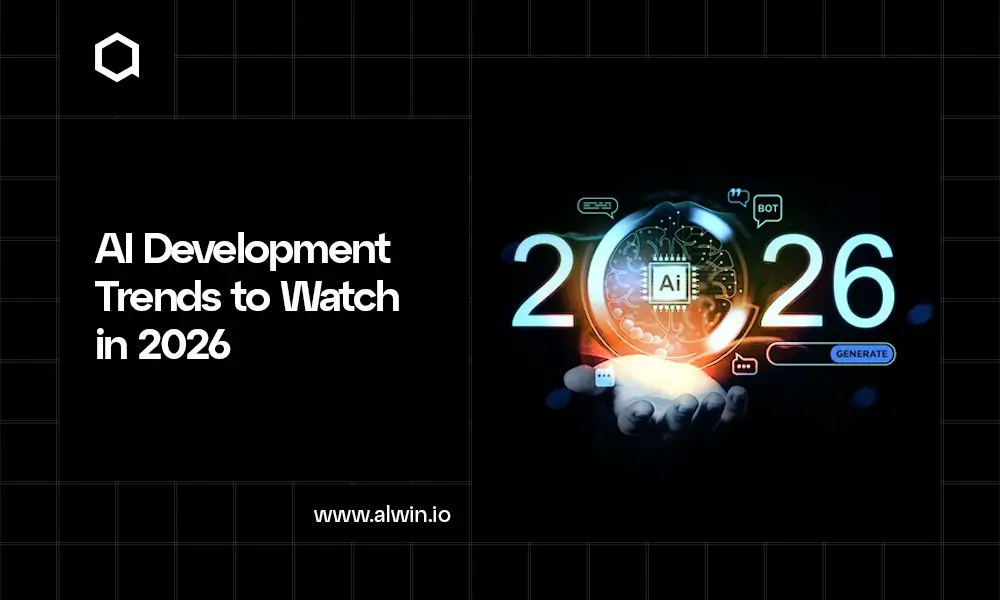In today’s digital age, Zero-Knowledge Proofs (ZKPs) are redefining privacy and security. A Zero-Knowledge Proof is a cryptographic method where one party (prover) can prove a statement’s truth to another (verifier) without revealing any underlying details. Simply put, it’s like proving you know a secret without sharing the secret itself.
This breakthrough technology is gaining traction across industries, especially in blockchain, decentralized identity, and secure transactions, where privacy and trust are paramount. By eliminating the need to expose sensitive information, ZKPs have become a game-changer in modern cryptography and scalable blockchain solutions.
In this blog, we’ll explore how ZKPs work, their types, and their transformative use cases across various sectors. Dive in to discover why Zero-Knowledge Proofs are the future of secure verification.
What Are Zero-Knowledge Proofs?
At its most fundamental level, a Zero-Knowledge Proof (ZKP) is a cryptographic technique where one party (the prover) demonstrates to another party (the verifier) that they possess knowledge of a specific piece of information without actually disclosing the information itself. This makes ZKPs a cornerstone of privacy-preserving technology.
Real-Life Analogy: The Locked Door
To better understand, imagine a scenario where you want to prove to someone that you know how to unlock a door with a key, but you don’t want to hand over the key or let them see how you unlock it. Instead, you step into the room, close the door behind you, and then step out through the same locked door, proving that you had the key without ever revealing it or showing the unlocking process.
This analogy illustrates the power of Zero-Knowledge Proofs: the verifier gains absolute confidence in the prover’s claim without learning the underlying secret (the key).
Core Concepts of ZKPs
Zero-knowledge proofs rely on three main properties:
- Completeness: If the prover’s claim is valid, the verifier will always be convinced.
- Soundness: If the prover’s claim is false, no dishonest prover can convince the verifier.
- Zero-Knowledge: The verifier learns nothing beyond the validity of the claim.
These properties ensure that ZKPs are secure and maintain the prover's privacy, making them ideal for a wide range of applications, including secure digital transactions and blockchain-based verifications.
How Do Zero-Knowledge Proofs Work?
To understand how Zero-Knowledge Proofs operate, it’s essential to know their primary components:
- Prover: The individual or system that possesses the secret or knowledge and seeks to prove its validity.
- Verifier: The individual or system that validates the prover’s claim without gaining access to the underlying secret.
- Proof: The cryptographic evidence generated by the prover, is used to convince the verifier of the claim’s truth without revealing the secret.
Step-by-Step: How ZKPs Operate
Zero-knowledge proofs can be implemented in two ways: interactive and non-interactive. Here’s a simplified explanation of each:
1. Interactive Zero-Knowledge Proofs
In an interactive ZKP, the prover and verifier engage in multiple rounds of communication. Let’s break this down:
- Step 1: Challenge: The verifier poses a challenge to the prover, asking them to demonstrate specific knowledge without revealing it.
- Step 2: Response: The prover generates a response based on the challenge, proving they possess the knowledge.
- Step 3: Verification: The verifier checks the prover’s response against the criteria for validity. This process may be repeated multiple times to ensure reliability.
For example, imagine the prover claiming to know the solution to a maze. The verifier challenges the prover to exit the maze from various starting points. Each successful response reinforces the verifier’s confidence in the prover’s claim.
2. Non-interactive zero-knowledge Proofs
In a non-interactive ZKP, the prover generates a single, self-contained proof that the verifier can validate independently. This method eliminates the need for back-and-forth communication.
- Step 1: Proof Generation: The prover uses a cryptographic algorithm to create proof of their knowledge.
- Step 2: Verification: The verifier uses the proof and a predefined verification algorithm to confirm the claim’s validity.
This approach is particularly useful in blockchain applications, where scalability and efficiency are crucial.
Why Does It Work?
The magic of Zero-Knowledge Proofs lies in their reliance on advanced cryptographic principles, such as:
- Commitment Schemes: The prover commits to specific information without revealing it.
- Random Challenges: The verifier’s challenges are random, making it nearly impossible for a dishonest prover to fake their way through.
These techniques ensure that ZKPs are secure and trustworthy, enabling their widespread adoption in privacy-centric applications.
Types of Zero-Knowledge Proofs
zk-SNARKs (Succinct Non-Interactive Arguments of Knowledge)
Definition: A type of ZKP that provides short and efficient proofs.
Key Features:
- Requires a trusted setup.
- Proof size is compact, making it highly scalable.
- Used in applications like Zcash and zk-rollups.
zk-STARKs (Scalable Transparent Arguments of Knowledge)
Definition: A transparent alternative to zk-SNARKs that doesn’t require a trusted setup.
Key Features:
- Uses hash functions instead of elliptic curve cryptography.
- Highly scalable and secure.
- Suitable for public blockchain applications.
Bulletproofs
Definition: A type of ZKP optimized for range proofs.
Key Features:
- No trusted setup is required.
- Short proof sizes compared to zk-SNARKs and zk-STARKs.
- Commonly used in confidential transactions, such as Monero.
Sigma Protocols and Proof-of-Knowledge (PoK)
- Sigma Protocols: Used in cryptographic systems to prove knowledge of discrete logarithms without revealing them.
- Proof-of-Knowledge (PoK): Ensures the prover possesses specific knowledge without revealing it.
Comparison Table of Zero Knowledge Proofs

Applications of Zero-Knowledge Proofs
Blockchain
1. Zk-rollups:
- Aggregate multiple transactions into a single proof.
- Boosts scalability and reduces gas fees on Layer 2 networks.
- Widely adopted in Ethereum-based solutions.
2. Zk-Plasma:
- Combines zk-proofs with Plasma to enhance transaction security and scalability.
- Prevents fraud and improves efficiency in blockchain networks.
3. Decentralized Exchanges (DEXes):
- Ensures user anonymity while verifying transactions.
- Enhances privacy in trading without compromising security.
4. Layer 2 Scaling:
- Supports faster transactions without overburdening the main blockchain.
- Provides a seamless experience for users.
Decentralized Identity and Authentication
- Enables users to prove their identity without sharing sensitive information.
- Used in self-sovereign identity systems to grant control over personal data.
- Prevents identity theft and data breaches.
Secure Voting Systems and E-Governance
- Facilitates anonymous and verifiable online voting.
- Ensures vote integrity without revealing voter identity.
- Promotes transparency in e-governance initiatives.
Healthcare and Financial Data Privacy
- Protects sensitive patient records and financial transactions.
- Enables data sharing between parties without compromising privacy.
- Ensures compliance with data protection regulations like GDPR and HIPAA.
Supply Chain Transparency
- Verifies product authenticity and origin without exposing business secrets.
- Improves trust and accountability across supply chain stakeholders.
- Prevents counterfeit goods and ensures ethical sourcing.
Benefits of Zero-Knowledge Proofs
- Privacy Protection: Ensures sensitive information remains undisclosed while proving its validity.
- Data Security: Reduces the risk of data breaches by eliminating unnecessary data sharing.
- Efficient Transactions: Reduces the computational and storage requirements for blockchain networks.
- Layer 2 Integration: Powers faster and cheaper transactions by leveraging scalable ZKP-based solutions like zk-rollups.
- Direct Interactions: Removes the need for third-party trust providers, reducing costs and complexity.
- Trustless Systems: Establishes secure communication between parties without requiring direct information sharing.
Challenges of Zero-Knowledge Proof Adoption
- High Processing Requirements: ZKPs involve complex cryptographic calculations that demand significant computational power.
- Time-Intensive Proof Generation: Generating proofs can be slower compared to traditional verification methods.
- Energy Consumption: ZKPs can require more energy, especially in resource-constrained environments.
- Infrastructure Costs: Scaling ZKP-based solutions may increase operational expenses for organizations.
- Knowledge Gap: Many stakeholders lack a comprehensive understanding of ZKP technology and its potential applications.
- Adoption Hesitancy: Low awareness among businesses and individuals slows down the integration of ZKP solutions.
- Undefined Standards: The absence of clear regulatory guidelines creates uncertainty for organizations adopting ZKP technology.
- Jurisdictional Challenges: Compliance with varying legal frameworks across regions can be complex for global applications of ZKPs.
Future of Zero-Knowledge Proofs in Technology
- Web3 Integration: ZKPs are set to become foundational for privacy and scalability in decentralized applications (dApps) and blockchain ecosystems.
- Metaverse Security: Ensures secure, private interactions in virtual environments, safeguarding user identities and transactions.
- IoT and Smart Cities: ZKPs can protect sensitive data in interconnected
- Financial Services: Widespread use of ZKPs for secure, privacy-preserving transactions and identity verification.
- Healthcare: Enhanced patient data privacy with seamless data sharing for research and diagnostics.
- E-Governance: Adoption of ZKPs for secure digital voting and transparent governance processes.
- Supply Chain: Increased implementation for verifying product authenticity and ensuring ethical sourcing.
- Gaming and Entertainment: Integration into blockchain gaming for secure in-game asset ownership and transactions.
Conclusion
Zero-knowledge proofs (ZKPs) stand as a pivotal advancement in cryptography and blockchain technology, enabling secure verification of data without compromising its privacy. This innovation is driving significant changes in how we approach privacy and trust across digital systems, paving the way for a more secure and decentralized future.
As the adoption of ZKPs continues to grow, understanding and leveraging their potential is essential for organizations looking to enhance their technological offerings. From securing transactions to safeguarding identities, ZKPs provide unmatched capabilities for modern enterprises.
At WeAlwin Technologies, a leading Blockchain development company, we are at the forefront of blockchain innovation, helping businesses seamlessly integrate advanced solutions like Zero-Knowledge Proofs. Our expertise ensures your projects are equipped with cutting-edge technologies to thrive in an ever-evolving landscape. Contact WeAlwin Technologies today and let us help you harness the power of ZKPs to drive success in your blockchain endeavors.



